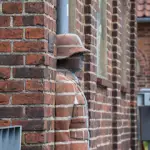
Whether you are buying a property for the first time or as a previous homeowner, this is a significant investment. You may be wondering whether a house survey is worth the money and who is responsible for organising it.
So who organises a survey when buying a house? It’s usually the buyer who organises a survey when buying a house in England and Wales. But in Scotland it’s the seller who organises it. But if you are borrowing on a mortgage your lender will insist on a valuation survey that will check the property is structurally sound and free from damp.
Do you have to have a survey when buying a house?
A survey when you buy a house is optional. But is recommended as it gives piece of mind and can help you avoid expensive and unwanted surprises. But if you’re taking out a mortgage, your lender will insist on a valuation survey. This checks whether the property is structurally sound and free from damp.
The survey a mortgage lender orders will be a basic survey. This basic survey will confirm the property is sound and worth what you are paying for it. But you can upgrade this survey if you wish. This upgrade includes a building survey or what used to be called a full structural survey. See table below for the types of survey and what they cover.
When should a pre-purchase house survey be done when buying a house?
A survey should be done when buying a house before contracts are exchanged. This is before you’re committed to the purchase. The only time when a survey needn’t to be done is if you are a qualified RICS building surveyor or a builder yourself. This article is worth a read about who is responsible for repairs after exchange of contracts.
You are taking a huge risk if you buy a house without having a house survey done.
How much does a house survey cost?
The cost of a house survey depends on which survey you have and the purchase price of the house. Below is a guide to what these will cost:
- Condition report starts at a cost of £400 for properties costing under £100,000. But may cost up to £950 for properties costing in excess of £500,000.
- A homebuyers report starts at a cost of £450 for properties costing under £100,000. But can cost £1,000 for properties costing in excess of £500,000.
- A building survey report starts at a cost of £600 for properties costing under £100,000. But can cost in excess of £1,500 for properties costing more than £500,000.
Who pays for a survey when buying a house?
It is the buyer who pays for the cost of a survey in England and Wales. This is even the case where the lender insists on having a valuation survey done. But in Scotland it is the seller who pays for the survey.
You won’t have a choice about which surveyor surveys the house for the lender, even though you are paying for this. But if you decide to upgrade the type of survey to a full building survey you can choose who does this.
Some mortgage deals include the house survey for free. Lenders also sometimes offer a cashback that will pay for the cost of the survey once you complete on the purchase.
Pre purchase house survey and what do they look for?
A property survey is a detailed inspection of a property’s condition, but depending on the survey type you choose this will affect the level of checking they perform. All surveys will check for structural problems, subsidence and any issues with damp.
The table below will give you a better idea of what’s included in each type of property survey.
The different types of property surveys available including condition report, homebuyer report and building survey
| What can go wrong | Condition Report | Homebuyer Report | Building Survey (Full Structural Survey) |
|---|---|---|---|
| A check that the appliances working properly | No | No | No |
| Heating system working properly | Visual inspection only | Visual inspection only | Visual inspection together with a request of the owner or occupier to activate the system to check basic operation |
| Bathroom fittings | Visual inspection only | Visual inspection only | Visual inspection and toilets are flushed and taps are turned on |
| Damp, including rising damp, penetrating damp and condensation | Yes | Yes | Yes |
| Conservatory leaks | Only if there's visible damage or if it's raining on inspection day | Only if there's visible damage or if it's raining on inspection day | Only if there's visible damage or if it's raining on inspection day |
| Roof leaks | Only if there's visible damage or if it's raining on inspection day | Only if there's visible damage or if it's raining on inspection day | Only if there's visible damage or if it's raining on inspection day |
| Rotting timbers including insect attack | Yes, but carpets and floor coverings are not lifted | Yes, but carpets and floor coverings are not lifted | Yes, but carpets and floor coverings are not lifted unless the owner agrees and there's no heavy furniture to lift |
| Leaking gutters and downpipes | Only if there's visible damage or noticeable prior leakage but this will be visible if it's raining on inspection day | Only if there's visible damage or noticeable prior leakage but this will be visible if it's raining on inspection day | Only if there's visible damage or noticeable prior leakage but this will be visible if it's raining on inspection day |
| Drains | Neither the drains nor drainage systems are tested | Neither the drains nor drainage systems are tested | The surveyor will open all reasonably accessible, lightweight inspection chamber covers and attempt to identify the means of foul and surface water disposal (where necessary they will advice for a professional drainage inspection) |
| Subsidence or structural movement | Yes | Yes | Yes |
| Blown double glazing | No | Yes | Yes |
| Outside doors and window opening | Yes | Yes | Yes |
| Internal doors | All opened and closed where unlocked and keys are available | All opened and closed where unlocked and keys are available | All opened and closed where unlocked and keys are available |
| Boundary walls and fences | Visually inspected | Visually inspected | Visually inspected |
| Roof coverings | Visually inspected | Visually inspected | Visually inspected |
| Chimney | Visually inspected | Visually inspected | Visually inspected |
| Main walls | Visually inspected | Visually inspected | Visually inspected |
| Built-in fittings opened including kitchens, bathrooms and wardrobes (but not appliances) | Yes | Yes | Yes |
| Septic tank | No | No | Will identify any illegal connections to septic tanks and should be visually inspected |
| Vermin like rats and bats | Visual inspection of loft | Visual inspection of loft | Visual inspection of loft |
| Lights and extractor fans | No | No | Yes these are tested by switching them on |
| Ceilings | Visually inspected from floor level | Visually inspected from floor level | Visually inspected from floor level and are gently pressure tested for underlying defects |
| Floors | Surfaces of exposed floors are visually inspected | Surfaces of exposed floors are visually inspected | The surface of floors not covered with fixed floor coverings and subfloor areas are inspected as far as practicable |
| Japanese Knotweed | Yes | Yes | Yes |
Is a pre purchase house survey worth it?
For most people a house purchase is going to be the biggest investment they will ever make, so a house survey is worth it. A house survey will give you piece of mind and can help you to avoid expensive and unwanted surprises.
If you compare what a house survey costs vs what it can cost to fix problems like subsidence or damp, the cost of a survey is certainly worth the investment. But if you need convincing, please take a read of this article on how much does subsidence devalue a property.
When you read this article the cost of a survey pales into insignificance when compared to the lost value and cost associated with discovering subsidence after you buy a house.
If a survey picks up a major problem with the house you’re buying, you can either knock the cost of repair from the purchase price or walk away from the purchase. Whilst you won’t get the cost of the survey back if you walk away, at least you haven’t invested thousands in a house that’s in need of major repairs.
I hope you’ve got something from reading this article about who organises a survey when buying a house
If you’ve got something from this article about “who organises a survey when buying a house” please share it on your favourite social media site.
Also, if you have any questions, please feel free to comment below too. Alternatively, if you need more help, please feel free to contact us on our contact us page here. Or join the discussion and ask your question in the property forum.




